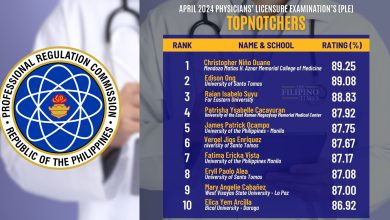The Public Utility Vehicle (PUV) modernization program targets to phase-out jeepneys, fx, and buses aged 15 years and older.
The DOTr earlier signed memorandums of agreement with the Development Bank of the Philippines and the Land Bank of the Philippines for a P1.5 billion loan facility for PUV cooperatives and a P1 billion franchising scheme for individual operators, respectively, Rappler reported.
The department denied claims that the program is “anti-poor” as the loan schemes to help current PUV drivers afford modernized vehicles are major proponents of the program.
But here’s why some people against it.
In a statement, pro-Overseas Filipino Workers (OFW) militant group Migrante weighed in on the program’s effects to the general public, and concluded that OFWs, like the protesters behind the recent transport strike, should stand against the “anti-poor” and “anti-masses” program.
According to Migrante’s statement, about 270,000 traditional jeepneys nationwide will be replaced by e-jeepneys priced at about P1.5 million each; this will put 650,000 jeepney drivers at risk of losing their livelihood, and burden 9 million jeepney commuters with a 50 percent fare hike.
OFWs who enjoy the efficient and modernized mass transportation in their host countries, “want the same for [the] millions [of] Filipinos in [their] homeland, for their family, children, relatives who are motorists and commuters alike”, Migrante said.
“There goes another opportunity for our OFWs to invest in something that would contribute to nation-building, in this case, mass transport that benefits millions,” the group statement read.
The modernization program, said Migrante, will enable giant corporations to monopolize the public transportation market, put current PUV drivers out of their jobs, and raise the P8 fare to P20 to ensure a return of investment.
Migrante said it believes the Philippines can achieve a modernized and efficient public transportation system similar to those enjoyed by OFWs abroad, and suggested that the government to “channel resources to subsidize mass transport at no cost to drivers, operators, and commuters”.





